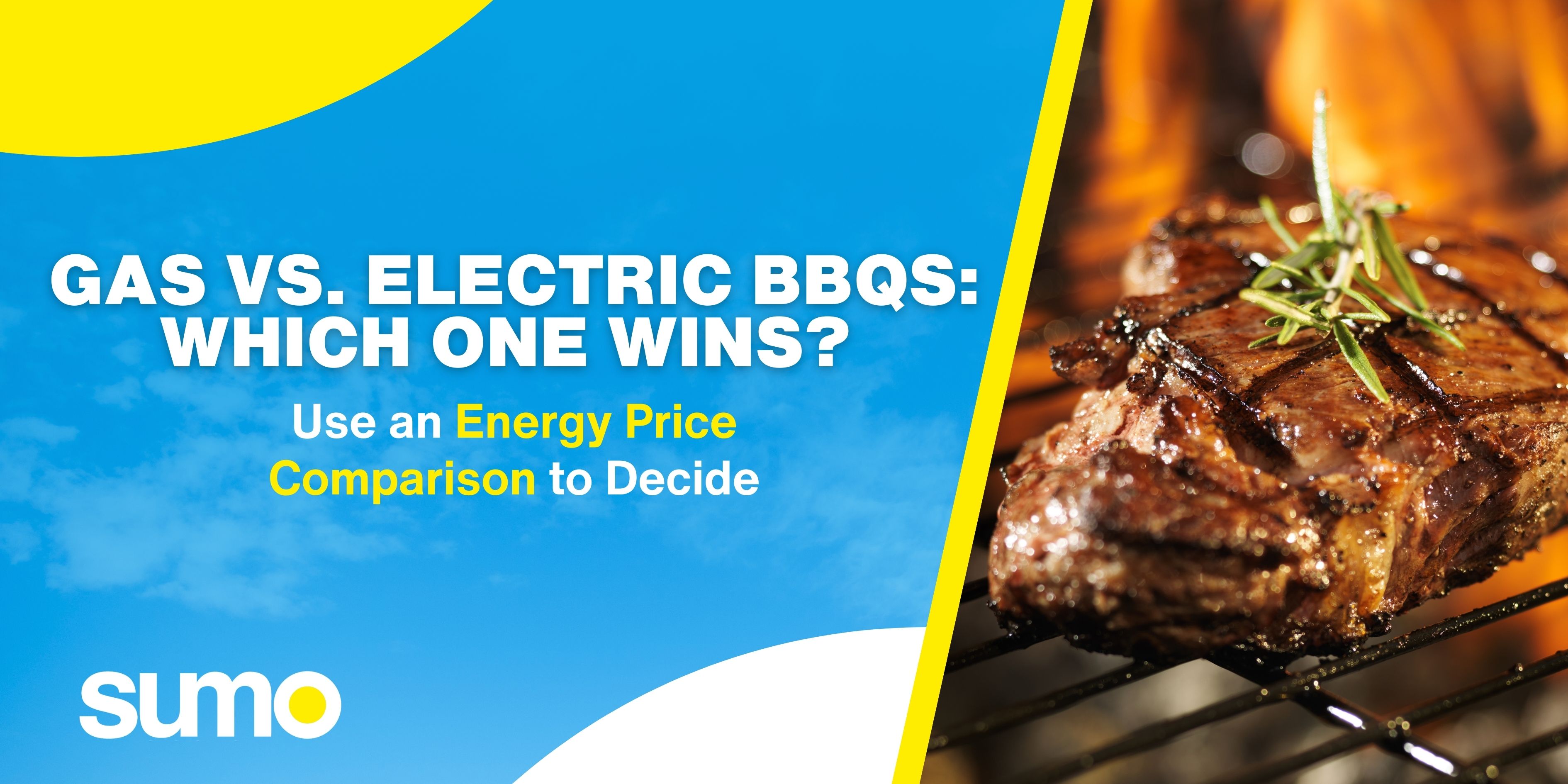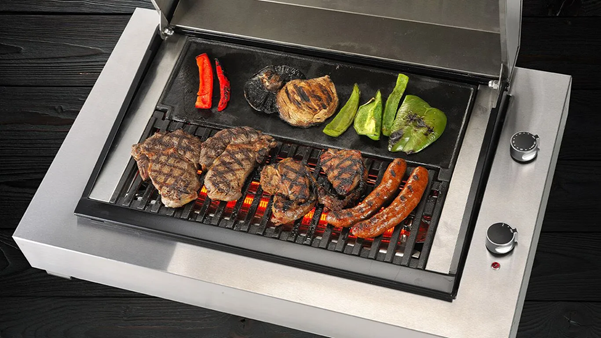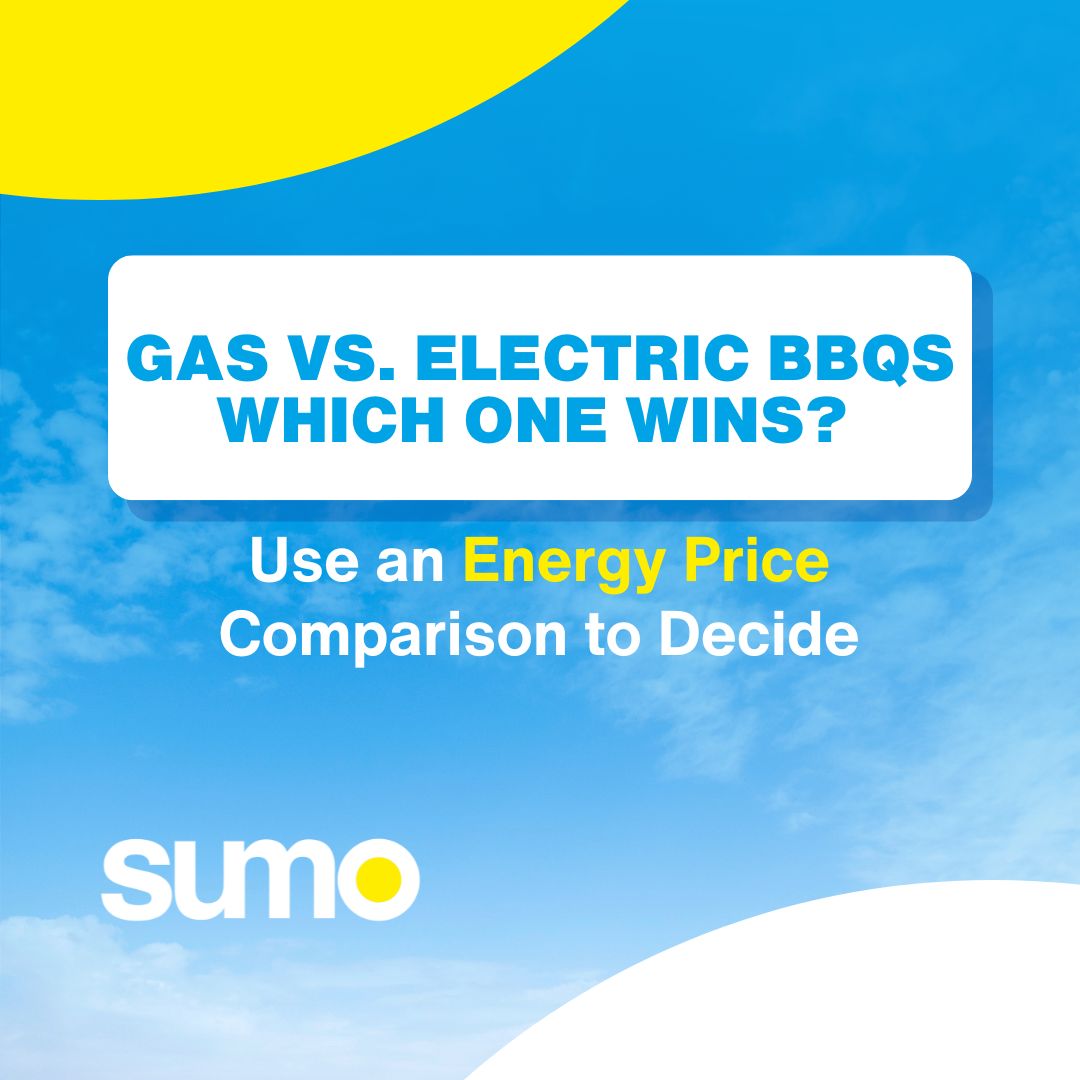There’s nothing more Aussie than firing up the barbie on a warm afternoon, whether hosting a backyard bash, gathering around with mates for a Sunday feed, or just cooking up some snags for yourself. It’s an iconic part of our culture—no backyard is complete without a BBQ, and nothing says “Aussie summer” quite like the sizzling sound of food on the grill.
But when it comes to choosing between gas and electric BBQs, it can get tricky. Which one will give you the best experience while keeping an eye on your wallet? Let’s break it down with a closer look at the key differences—and dive into an energy price comparison to see how each stacks up regarding performance and cost.

Which Cooks Better: Gas vs. Electric?
Gas BBQs are the go-to for many Aussies, and for good reason. They heat quickly, give you that authentic flame-grilled taste, and offer precise temperature control. Many BBQ enthusiasts swear by the precision of gas temperature control—turn the knobs to adjust the heat, and you get instant feedback. This is particularly important for searing meats, achieving the perfect char, and cooking at higher temperatures.
On the other hand, electric BBQs are convenient—plug in and start cooking. However, they can take longer to heat up and might not give you that classic BBQ flavour. While temperature control in electric BBQs can sometimes be less intuitive or precise, newer models are built with more sophisticated controls, offering greater flexibility and accuracy.
So, if you want more control over your cooking temperature, the latest electric BBQs are narrowing the gap, but gas still reigns supreme in performance.

Energy Price Comparison - Cost of Running a Gas vs. Electric BBQ
Electric BBQ Running Costs
Electricity rates vary by retailer and location, with an estimated cost of 30 cents per kWh. Households also pay a daily supply charge, typically ranging from 95.9c to 179.6c per day (Canstar Blue).
For example, using the Ninja Electric BBQ (rated at 1.76 kW) for 2 hours:
- Power consumption: 1.76 kW × 2 hours = 3.52 kWh
- Electricity cost: 3.52 kWh × $0.30 = $1.06
So, running the electric BBQ for 2 hours would cost $1.06 on your electricity bill.
Gas BBQ Running Costs
Gas is less energy-dense than electricity—it takes 3.6 MJ of gas to match 1 kWh of electricity. According to the Department of Industry, Science and Resources, five million Australians rely on natural gas to power their homes, making it a key part of the energy mix.
For a 4-burner natural gas BBQ with a total gas consumption of 44 MJ per hour, the cost can be estimated based on a natural gas rate of 2.92 – 3.03 cents per MJ:
- 1 hour of BBQ use: 44 MJ × (2.92 – 3.03 c/MJ) = $1.29 – $1.33
- 2 hours of BBQ use: 88 MJ × (2.92 – 3.03 c/MJ) = $2.57 – $2.67
🔹 These rates are for estimation purposes only, as energy prices vary by location and provider. It’s always best to check with your gas retailer for the most up-to-date rates.
When comparing energy prices, it’s worth making an energy price comparison to see how your costs might change.
Check with an energy retailer like Sumo for an excellent energy price that suits your needs. Call us at 03 9102 8400 to explore our competitive gas and electricity options today!
Cooking Time and Efficiency
Gas BBQs tend to cook food faster due to the higher heat they can produce, making them more efficient when cooking large amounts quickly. Whether grilling a few steaks or preparing a whole feast, gas BBQs deliver the quick cooking times BBQ enthusiasts love.
Electric BBQs, on the other hand, take longer to heat up. While some newer models with advanced heating elements provide more consistent heat distribution, they still might not reach the same high temperatures as gas grills.
Indoor vs. Outdoor Usage
Gas BBQs are best suited for outdoor use due to ventilation requirements and open flames. They’re ideal for backyards, patios, and outdoor gatherings, offering high heat and fast cooking times.
Electric BBQs, on the other hand, are versatile enough for both indoor and outdoor use. Since they don’t produce open flames or emissions, they’re a great option for balconies, apartments, and enclosed spaces—just be mindful of electricity costs by checking an energy price comparison to keep your grilling budget-friendly.
Long-Term Durability and Reliability
Gas BBQs are known for their long-lasting durability. With proper maintenance, they can serve you for many years. They’re generally more robust, with stainless steel options that are resistant to rust and wear. Gas BBQs also don’t rely on electricity, making them reliable in outdoor environments where power outlets aren’t available. Plus, in states like NSW and VIC, where natural gas is competitively priced, comparing energy prices can help you find a cost-effective gas plan to keep your BBQ running affordably.
Electric BBQs are still durable, but their lifespan can depend on the quality of the wiring and heating elements. They may be more vulnerable to wear and tear in areas with frequent power outages or voltage fluctuations. However, with proper care, they can offer reliable service for years. Since electricity is charged per kilowatt-hour (kWh) and a daily supply charge, it’s worth checking an energy price comparison to see how much an electric BBQ could add to your bill.
The Verdict?
If you love a classic BBQ experience with potentially lower running costs, gas might be the best bet. Gas BBQs offer fast cooking times, precise temperature control, and durability. But if convenience and sustainability are your priorities, an electric or hybrid BBQ could be a wise choice. While they might not heat up as quickly or reach the high temperatures of gas grills, newer electric BBQs offer excellent temperature control and efficiency. An energy price comparison can help you decide which option suits your budget and lifestyle best.
Whatever you choose, there’s no wrong way to enjoy a great Aussie BBQ!
Are you looking to compare energy prices for your home and BBQ setup?
Leave your postal code below and check out the latest gas plans in NSW and VIC to find the best fit for your needs.

No Comments Yet